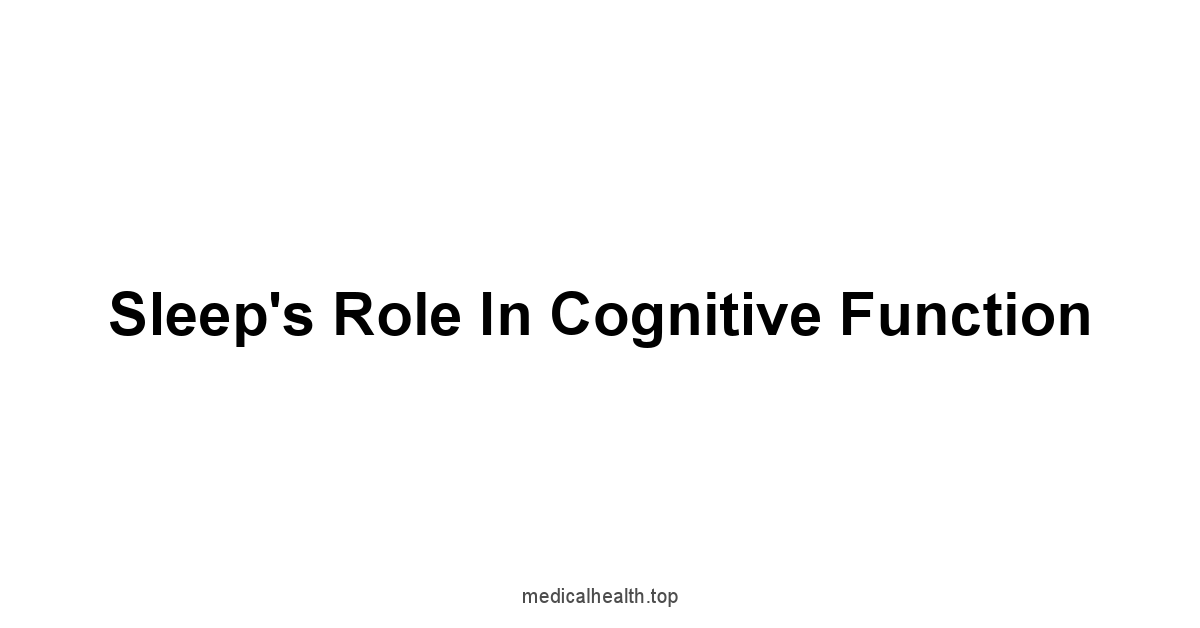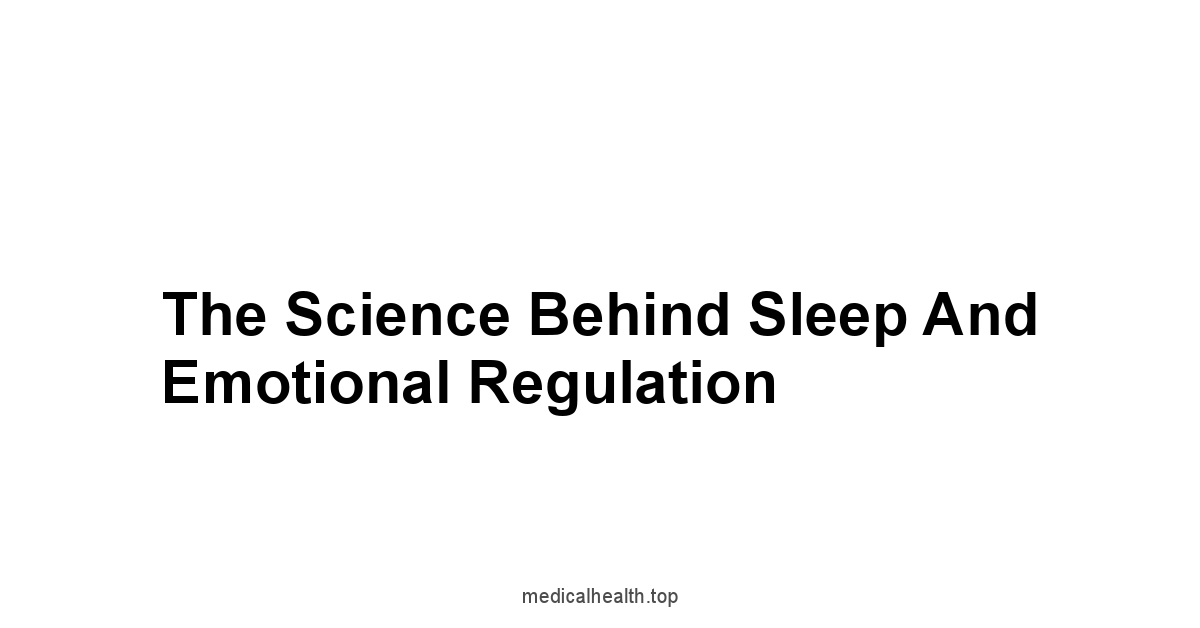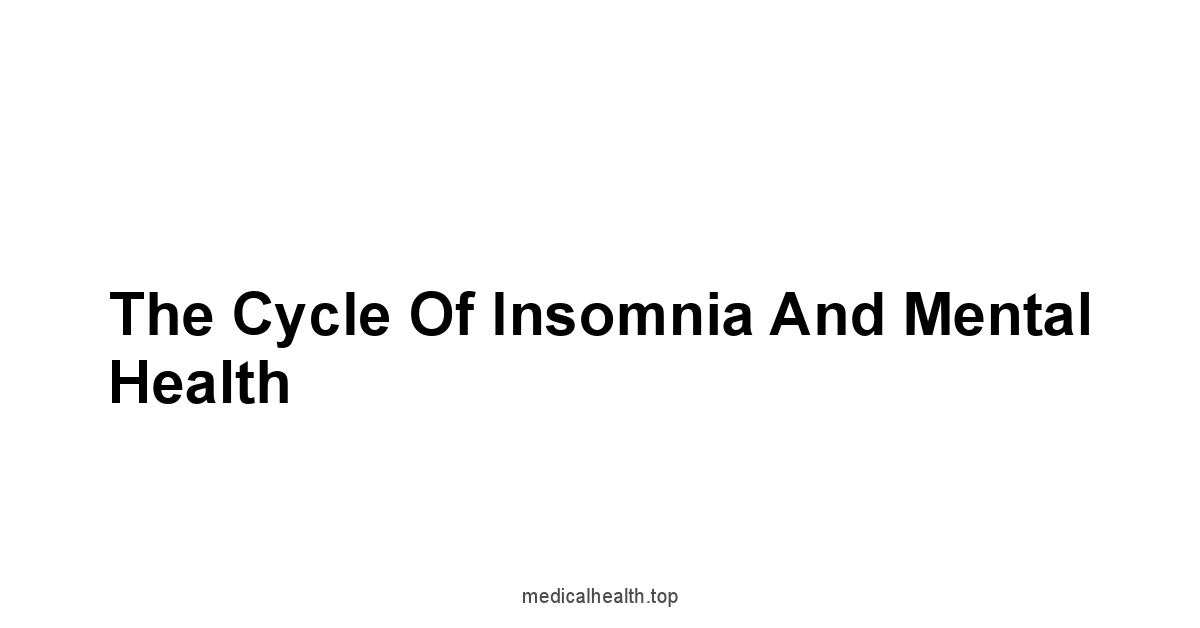Listen, the whole deal with your head, your feelings, it all hangs on how well you sleep. It’s the base, the foundation. Mess that up, and you’re in for a rough time.
A good night’s rest? Not a fancy thing, it’s a must have for keeping your head straight.
It changes everything, from how you handle the bad days to just talking to people. Without it, you’re a ship in a storm.
Small things become big fights, a simple question turns into a battle. sleep deprivation? It messes with your system.
A study showed that people who didn’t sleep well were like 20% more grumpy. That’s science talking.
Your temper, it goes south quick. You get mad easier, frustrated over nothing.
Like your wires are all frayed and your emotional controls are taking a nap.
You snap at people for no good reason, you’re just raw. It’s a one-way ticket to anxiety. Worries grow, small stuff feels huge.
Sleep deprivation cranks up the stress hormone, and you’re always jumpy.
Your brain’s fear center, it goes wild over nothing, while the part of your brain that keeps you calm takes a beating.
You get caught in a loop, no sleep makes you anxious, and anxiety keeps you awake.
Some study showed that people who can’t sleep were five times more likely to get anxiety. That’s a fact, not just a bad day.
Then comes the low mood and depression. They go together like whiskey and a bad hangover.
Not sleeping messes with the chemicals in your head, the ones that keep you happy and level.
It makes your thinking go dark and kills your energy. You sleep bad, you feel worse. You feel worse, you sleep bad, is a horrible cycle.
The experts say that folks with depression have trouble sleeping, and fixing the sleep can help with the low mood.
It’s like magic, if magic was real and science backed.
When your brain is empty, it’s like trying to drive a car without gas.
Can’t focus, memory fades, can’t make a decent choice to save your life.
After a bad night, you can’t think straight, every small noise throws you off. Your reactions are slow.
Sleep is when your brain files away what happened during the day, and if you don’t sleep, it messes with your memory.
It ain’t just rest, it’s when your brain keeps the good stuff. Kids who sleep well do better on tests. It also ruins your decision-making skills. You make bad choices, risky moves. Your self-control takes a nap.
People who don’t sleep enough are more likely to do something they regret.
Your brain uses chemicals to talk, the good stuff like serotonin and dopamine.
Sleep controls how much you have of these, and when your sleep is off, they go out of whack.
It messes with your mood and your ability to handle stress.
It’s a big reason why sleep is so crucial, it keeps everything balanced.
Sleep also keeps your stress hormones in check, so you don’t go haywire.
It helps keep you calm when you’re nervous or dealing with tough stuff.
Trouble sleeping and bad mental health, they’re a two-way street.
Worry keeps your brain awake, depression messes with your sleep patterns. It’s a whole mess, a bad cycle that goes on and on.
If you let it go too long, it’s bad news, long-term problems, bad health, mental problems. It’s like a slow train wreck.
But there is always a way out, you can get back on track.
Stick to a regular sleep schedule, make your bedroom a good place to rest, do some chill things before bed and manage your life a little.
Go to bed and wake up at the same time every day, even weekends. Your body clock will thank you.
Make your room dark, quiet, cool, and keep your bed for sleep.
Try relaxing before sleep, like a warm bath or reading something.
Control what you eat and move your body, just not too close to bedtime.
Take charge of your sleep, take charge of your head, you will be a much happier person. It’s a start to a better and balanced life.
The Core Link Between Sleep and Mood

Sleep, it’s not just about closing your eyes. It’s the bedrock upon which our moods are built. A good night’s rest, and you face the world ready.
A bad night, and the world feels like it’s against you.
This isn’t some new-age idea, it’s the hard truth of how our bodies work.
Our emotions, our mental clarity, they are all deeply intertwined with the quality of our sleep.
When sleep is compromised, your emotional stability begins to crumble.
Think of it like a house: a strong foundation of sleep keeps everything stable, but a cracked foundation leads to collapse.
This isn’t just about feeling tired, it’s about how well you navigate your day and your life.
We’ve all felt the sting of a restless night—the edginess, the quick temper, the feeling like your brain is moving through mud.
This isn’t random, it’s a direct consequence of a biological system thrown out of balance.
The importance of sleep for mental well-being goes beyond just feeling rested, it impacts how we react to stress, how we handle emotions, and how we engage with the world.
When your sleep is in check, your emotions tend to be in check too, and vice versa. This link demands our attention.
Sleep Deprivation and Irritability
A few nights of tossing and turning, and suddenly small things feel like mountains.
It’s the way your brain starts to misfire when it doesn’t get the rest it needs. The patience you normally have? Gone.
The things that would usually roll off your back now get under your skin. You’re quicker to anger, easier to frustrate.
It’s like your emotional threshold has dropped, and the slightest bump can send you over the edge.
Consider these everyday scenarios:
- A traffic jam: Normally, you might shrug it off. But after a sleepless night? It’s a personal affront.
- A simple question: A simple, “What did you say?” can feel like an accusation and trigger anger.
- A minor inconvenience: The line at the coffee shop seems like a personal plot against you after a bad night’s sleep.
The irritability is not just in your head, it’s biological.
When you’re sleep-deprived, your brain’s emotional control center, the prefrontal cortex, isn’t operating at full capacity.
This leads to a reduced ability to regulate emotions, causing those sudden bursts of irritation.
Lack of sleep makes you react faster, and often negatively, to situations that you’d usually handle with a calm demeanor.
The data shows it clearly:
| Study | Findings |
|---|---|
| Journal of Sleep Research | Participants with sleep deprivation showed a 20% increase in irritability scores. |
| Sleep Medicine Review | Chronic sleep loss leads to heightened emotional reactivity and reduced frustration tolerance. |
| PLOS One | Sleep-deprived individuals are more likely to experience mood swings and emotional lability. |
The bottom line is clear: miss sleep, and you miss out on your calm.
Irritability isn’t just a side effect, it’s a signal, telling you your body is craving rest. Treat it as a warning, not a personality quirk.
How Lack of Sleep Fuels Anxiety
The world feels like it’s closing in when you’re running on empty.
Anxiety, that tight feeling in your chest, often comes from a lack of sleep. It’s not just a mental game, it’s a biological one.
A sleepless night makes your thoughts race, turning small worries into bigger ones.
You become hyper-aware of every little thing that could go wrong, magnifying the stress of your day.
The normal challenges that you handle with ease become a source of overwhelming dread when you haven’t slept well.
Here’s how lack of sleep fuels anxiety:
- Increased Cortisol: A lack of sleep spikes your body’s stress hormone, cortisol, leaving you in a state of heightened alert.
- Overactive Amygdala: The amygdala, the brain’s fear center, becomes more active and sensitive to perceived threats.
- Reduced Prefrontal Control: The prefrontal cortex, responsible for rational thought and emotional regulation, weakens and loses its control.
Think of it like this: your brain is like a car. Sleep is like the fuel. Without it, the car can’t run smoothly.
The engine sputters, the tires wobble, and every bump feels like the end of the road.
For someone struggling with anxiety, a lack of sleep can feel like throwing gasoline on a fire.
Statistics and Studies:
- A study in the Journal of Psychiatric Research found that people with chronic insomnia were five times more likely to develop anxiety disorders compared to those with regular sleep patterns.
- Research from the American Psychological Association indicates that even short-term sleep deprivation can significantly elevate anxiety levels.
- A survey conducted by the National Sleep Foundation revealed that 48% of individuals who report experiencing anxiety also struggle with sleep difficulties.
It’s a vicious cycle.
Anxiety can keep you up at night, and lack of sleep then feeds the anxiety.
It’s essential to break this cycle by prioritizing sleep.
Recognizing how these two issues are connected is the first step towards reclaiming your calm.
The Connection Between Sleep and Depression
Depression, it’s more than just feeling sad.
It’s a heavy, relentless weight, and a lack of sleep only makes it heavier.
When you’re deprived of sleep, the mechanisms in your brain that keep you steady start to falter, and this can trigger or worsen depressive symptoms.
The line between a restless night and a depressed state is often finer than we realize.
It’s a tangled web of cause and effect that can feel impossible to escape.
Depression and sleep are intertwined. Here are a few key points:
- Neurochemical Imbalance: Lack of sleep affects neurotransmitters like serotonin and dopamine, which are vital for mood regulation. These imbalances are often associated with depression.
- Increased Negative Thinking: Sleep deprivation can amplify negative thoughts and reduce the ability to process emotions healthily.
- Reduced Energy: The fatigue that follows poor sleep can lead to social withdrawal and a lack of motivation, common symptoms of depression.
Many people who suffer from depression also report significant sleep problems. It’s a tough spot, like chasing your tail.
The worse you sleep, the worse you feel, and the worse you feel, the harder it is to sleep.
Real-World Insights:
- According to the National Institute of Mental Health, people with depression are more likely to experience insomnia or other sleep disorders.
- Research published in JAMA Psychiatry indicates that treating sleep disorders can sometimes lead to an improvement in depressive symptoms.
- A survey by the Sleep Foundation noted that individuals with depression report significantly more difficulty falling asleep and staying asleep.
Here’s a simple table that shows this connection:
| Issue | Impact on Depression | Impact on Sleep |
|---|---|---|
| Sleep Deprivation | Worsens depressive symptoms | Contributes to chronic sleep loss |
| Depression | Increases sleep disturbances | Leads to insomnia or hypersomnia |
| Neurotransmitters | Imbalances worsen mood | Disruptions impact sleep cycle |
Ignoring the impact of sleep on depression is like trying to fix a leaky roof while ignoring the broken foundation.
Addressing sleep issues is a vital step in managing and treating depression.
It’s not a cure-all, but it’s a necessary piece of the puzzle.
Sleep’s Role in Cognitive Function

Sleep isn’t just about resting your body, it’s about recharging your mind.
Your brain doesn’t shut down when you sleep, it actively works to process the day’s events, consolidate memories, and prepare for the next day.
When you shortchange your sleep, you’re also shortchanging your cognitive abilities, turning what should be a sharp mind into a dull one.
It’s like a computer running on low power—it might still work, but not nearly as well.
Your mental performance depends heavily on the quality of your sleep.
Everything from your ability to focus and concentrate to your problem-solving skills and decision-making relies on having a good night’s sleep. It’s not a luxury, it’s a necessity.
A well-rested mind is more efficient, more productive, and less prone to errors.
Understanding the profound impact sleep has on your cognitive function is the key to unlocking your full potential. The better you sleep, the better you think. It’s that simple.
How Poor Sleep Impairs Focus and Concentration
Try focusing on a complex task after a night of restless sleep.
It feels like wading through mud, doesn’t it? Your mind wanders, you lose your train of thought, and simple tasks suddenly take forever.
This isn’t just a feeling, it’s a direct result of your brain not getting the rest it needs.
Focus and concentration are like muscles, they need regular sleep to stay strong.
Deprive yourself of sleep, and these cognitive abilities become weak and unreliable.
When you don’t sleep well, your brain’s prefrontal cortex, the area responsible for focus and attention, struggles to work efficiently. It’s like trying to drive a car with a low battery.
You might get there eventually, but it’ll be slow, difficult, and frustrating.
Here are the effects of poor sleep on focus and concentration:
- Increased Distractibility: Even the smallest distractions become major roadblocks to focus.
- Slower Reaction Time: Your mind is sluggish, leading to slower responses to stimuli.
- Difficulty Prioritizing: Deciding what’s important and what’s not becomes challenging.
- Mental Fatigue: Tasks that normally feel easy become mentally exhausting.
Consider these examples:
- Work: Struggling to meet deadlines because you can’t maintain focus.
- School: Having a hard time following lectures and understanding material.
- Daily Life: Forgetting appointments or misplacing items constantly.
Research from the National Institutes of Health shows that even a single night of poor sleep can impair attention and executive function. A long-term study from the Journal of Occupational and Environmental Medicine highlights the correlation between chronic sleep deficiency and reduced productivity at work. Lack of sleep affects everyone, regardless of age or profession.
Here’s a table summarizing the impact:
| Area | Impact of Poor Sleep |
|---|---|
| Focus | Reduced ability to maintain attention |
| Concentration | Difficulty filtering out distractions |
| Reaction Time | Slower responses to stimuli and information |
| Productivity | Decreased efficiency and increased errors in tasks |
The fix is clear: prioritize sleep.
It’s the fuel your brain needs to function at its best.
No amount of coffee or energy drinks can make up for the benefits of a good night’s sleep.
The Impact of Sleep on Memory Consolidation
Sleep isn’t just about rest, it’s when your brain files away the day’s information, like a librarian putting books back on the shelves.
This process, called memory consolidation, is vital for learning and recalling information.
When you sleep, your brain replays the day’s events, strengthening neural connections and making memories more permanent.
A good night’s sleep is the glue that helps your brain retain what you’ve learned.
If you skip sleep, it’s like trying to build a house with faulty cement, the structure is weak and prone to collapse.
Poor sleep directly impacts memory consolidation.
When you don’t get enough sleep, these vital processes are disrupted.
The result? You struggle to remember new information, you forget where you put your keys, and you find yourself asking, “What was I just saying?”
Here’s how sleep impacts memory:
- Short-Term to Long-Term: Sleep is crucial for moving memories from short-term storage to long-term storage.
- Synaptic Strengthening: During sleep, the connections between brain cells, or synapses, are strengthened, making memories more robust.
- Removal of Toxins: Sleep helps clear out waste products from the brain, which can interfere with cognitive function and memory.
Think of sleep as the “save” button for your brain. Without it, information is lost or corrupted.
This is especially important for students and anyone engaged in learning or memory-intensive activities.
- Research from the Sleep Foundation has shown that students who consistently get enough sleep perform better on tests and retain more information.
- A study in Nature Neuroscience found that sleep deprivation leads to impaired memory formation and retrieval.
- Studies from the American Academy of Sleep Medicine suggest that even naps can aid in memory consolidation, especially after learning new skills.
Consider this table that highlights these findings:
| Aspect of Memory | Impact of Good Sleep | Impact of Poor Sleep |
|---|---|---|
| Encoding | Efficient processing of new information | Difficulties in registering new information |
| Consolidation | Strengthening of neural connections for retention | Impaired memory storage and retention |
| Retrieval | Easy and quick recall of stored information | Difficulties in recalling stored information |
Prioritizing sleep isn’t just about feeling rested, it’s about ensuring your brain can store and retrieve information effectively.
Treat sleep like you treat studying – it’s an essential part of the learning process.
Sleep and Decision-Making Abilities
Ever made a questionable choice after a sleepless night? It’s a common experience, because sleep isn’t just about resting, it’s about sharpening your decision-making skills.
When you’re sleep-deprived, your ability to think clearly and make sound choices is compromised.
The prefrontal cortex, responsible for rational thought and decision-making, suffers when you haven’t slept well.
It’s like trying to navigate a complex maze with a foggy map, you’re more likely to make errors and take wrong turns.
Lack of sleep impairs several aspects of decision-making:
- Risk Assessment: You become more prone to impulsive and risky decisions.
- Impulse Control: Your ability to resist impulsive urges decreases.
- Judgment: Your capacity to evaluate information and make sound judgments falters.
- Problem-Solving: You struggle to analyze situations and devise effective solutions.
It’s not just about big life decisions, even everyday choices can be affected. For example:
- Work: Making poor business decisions due to impaired judgment.
- Personal Life: Having arguments with loved ones because of a lack of impulse control.
- Financial: Spending more money impulsively because you are less careful.
Real-World Data and Studies
- Research from the Journal of Sleep Research indicates that sleep-deprived individuals are more likely to make unethical decisions.
- A study in the Journal of the American Medical Association JAMA found that sleep-deprived medical residents made significantly more errors in their work.
- The National Sleep Foundation highlights that poor sleep leads to a significant increase in accidents and errors across various domains.
Here’s a table showing the effects of sleep on decision-making:
| Aspect of Decision Making | Impact of Good Sleep | Impact of Poor Sleep |
|---|---|---|
| Risk Assessment | More balanced and cautious decision making | Increased tendency towards risky choices |
| Impulse Control | Better ability to resist impulsive urges | Reduced ability to resist impulsive actions |
| Judgment | Accurate evaluation of situations and options | Flawed judgments and poor evaluations |
| Problem Solving | Logical and effective problem solving approaches | Difficulty in finding solutions to problems |
Prioritizing sleep isn’t just about feeling rested, it’s about making sure you have the mental clarity and judgment necessary for making sound decisions. Better sleep equals better choices.
The Science Behind Sleep and Emotional Regulation

Sleep isn’t just a passive state, it’s a complex biological process that involves a symphony of brain chemicals and hormonal interactions.
These interactions are crucial for emotional stability.
The neurotransmitters, hormones, and neural pathways that regulate mood and stress are all deeply connected to the sleep cycle.
When your sleep is out of sync, your emotional regulation system takes a hit, and the result is a cascade of mood disturbances and difficulties in handling stress.
Understanding the science behind sleep and emotional regulation is like understanding the engine of a car.
It’s crucial for understanding why we feel the way we do.
The neurotransmitters, such as serotonin, dopamine, and melatonin, act like the fuel, oil, and coolant of the emotional system.
The Hypothalamic-Pituitary-Adrenal HPA axis regulates stress responses, and the amygdala, which acts as the emotional center of the brain, responds to our environment.
All these elements are significantly influenced by your sleep patterns, and when sleep is compromised, these systems go into disarray.
Getting good sleep isn’t just about rest, it’s about making sure your brain’s emotional center is running smoothly.
Neurotransmitters and Sleep: Serotonin, Dopamine, and Melatonin
Neurotransmitters are the chemical messengers that allow your brain cells to communicate, and they play a crucial role in mood, emotions, and sleep.
Serotonin, dopamine, and melatonin are three key players that are highly influenced by your sleep patterns.
When you sleep, your brain produces and regulates these neurotransmitters, which, in turn, play a major role in your emotional regulation and overall well-being.
Here’s how each neurotransmitter is linked to sleep:
- Serotonin: Often called the “happy” chemical, serotonin plays a role in mood regulation, sleep, and appetite. During sleep, serotonin levels are regulated, which is crucial for maintaining a stable mood. A lack of sleep can reduce serotonin levels, leading to increased irritability and anxiety.
- Dopamine: Dopamine is associated with pleasure and reward but also plays a role in motivation and alertness. Sleep helps maintain a balance of dopamine levels. Too little sleep can disrupt dopamine, leading to feelings of fatigue, low motivation, and anhedonia loss of pleasure.
- Melatonin: Melatonin regulates the sleep-wake cycle. It’s produced in response to darkness and helps initiate sleep. Disruptions to your sleep routine can interfere with melatonin production, making it difficult to fall asleep and stay asleep.
Here is a simple breakdown:
| Neurotransmitter | Function | Impact of Good Sleep | Impact of Poor Sleep |
|---|---|---|---|
| Serotonin | Mood Regulation, Sleep | Balanced levels, better mood | Reduced levels, mood swings |
| Dopamine | Pleasure, Motivation, Alertness | Optimal levels, motivation | Disrupted levels, fatigue |
| Melatonin | Sleep Regulation | Regular production, sleep | Reduced production, insomnia |
Imbalances in these neurotransmitters are often linked to mood disorders like depression and anxiety.
By prioritizing sleep, you’re giving your brain the opportunity to properly regulate these vital chemicals.
It’s about keeping the delicate balance of these neurochemicals so you can navigate through the day with clarity and stability.
Data & Insights:
- Studies from the National Institutes of Health NIH show that sleep deprivation can significantly reduce serotonin and dopamine levels in the brain.
- Research published in the Journal of Clinical Endocrinology & Metabolism highlights the importance of melatonin in maintaining a regular sleep-wake cycle.
- The American Psychological Association APA notes that disruptions in neurotransmitter levels due to lack of sleep can contribute to mood disorders.
Sleep isn’t just about rest, it’s a vital process that allows your brain to regulate these critical chemical messengers, keeping your mood and emotions in check.
The Hypothalamic-Pituitary-Adrenal HPA Axis and Stress
The Hypothalamic-Pituitary-Adrenal HPA axis is your body’s primary stress response system.
It’s a network of interactions between three key components in the brain and adrenal glands that release cortisol, the stress hormone.
When you experience stress, the HPA axis kicks into gear, releasing hormones to help you cope.
The balance of this axis is deeply influenced by sleep, when you’re sleep-deprived, it can become overactive, leading to chronic stress and mood imbalances.
Understanding how the HPA axis functions and how sleep affects it is crucial for managing stress and emotional well-being.

Here’s how sleep impacts the HPA axis:
- Cortisol Levels: Sleep regulates the production of cortisol. Normally, cortisol levels peak in the morning to help you wake up and then decrease throughout the day. However, sleep deprivation can disrupt this rhythm, leading to chronically high cortisol levels, leaving you in a state of constant stress.
- HPA Axis Sensitivity: When you don’t get enough sleep, your HPA axis becomes more sensitive to stress triggers, meaning you can react more strongly to even minor stressors.
- Feedback Loop Disruption: The HPA axis has a feedback loop that signals when the stress response can be turned off. Sleep deprivation can impair this feedback loop, preventing the system from calming down, leading to chronic stress.
Here’s how a typical day looks and how lack of sleep affects it:
| Time of Day | Normal Cortisol Level | Impact of Sleep Deprivation |
|---|---|---|
| Morning | Peak levels, waking you up | Significantly higher peak levels |
| Afternoon | Levels gradually decrease | Levels remain elevated |
| Evening | Lowest levels, preparing for sleep | Levels do not decrease sufficiently |
When you have prolonged or chronic stress, it affects your physical and mental well-being, leading to issues such as anxiety, depression, and sleep difficulties, creating a vicious cycle.
It’s not just about occasional stress, it’s about the prolonged state of unease that can lead to chronic mental health issues.
Data and Statistics:
- Research from the Journal of Neuroendocrinology shows that sleep deprivation leads to dysregulation of the HPA axis, increasing stress hormones.
- Studies in the Psychoneuroendocrinology journal demonstrate a correlation between chronic sleep loss and elevated cortisol levels, which contributes to anxiety and depression.
- The National Sleep Foundation emphasizes that individuals with chronic sleep problems often exhibit heightened stress responses due to HPA axis dysregulation.
Prioritizing sleep helps regulate the HPA axis, and promotes a balanced stress response.
This allows you to cope with daily stresses more effectively and helps you maintain emotional stability.
How Sleep Affects the Amygdala’s Response
The amygdala, the part of your brain that processes emotions like fear and anxiety, is significantly affected by your sleep patterns.
It’s like the alarm system of your brain, constantly scanning for potential threats.
When you’re well-rested, the amygdala’s responses are balanced.
But when you’re sleep-deprived, it can become overactive, making you more prone to negative emotions, heightened anxiety, and exaggerated reactions to even minor events.
Sleep essentially keeps the amygdala from overreacting.
Here’s how sleep affects the amygdala:
- Increased Reactivity: Lack of sleep makes the amygdala more reactive to negative stimuli. Things that wouldn’t normally bother you become major triggers.
- Reduced Prefrontal Control: The prefrontal cortex, which regulates emotional responses, becomes less effective when you’re tired, leading to stronger emotional reactions driven by the amygdala.
- Emotional Instability: Sleep deprivation leads to mood swings and difficulties managing emotions, as the amygdala’s responses are not being regulated by the prefrontal cortex.
Think of the amygdala as a car alarm and the prefrontal cortex as the shut-off button.
A good night’s sleep ensures the shut-off button works well.
A sleepless night leaves you with a hyperactive alarm and no way to turn it off.
Examples of this in real life:
- Interactions: Seeming more irritated than usual.
- Reactions: Overreacting to minor annoyances, and seeing things in an overly negative way.
- Fear Response: Feeling heightened fear responses, often with feelings of anxiety.
Insights and Research:
- A study published in Current Biology demonstrated that sleep deprivation increases the amygdala’s response to emotional stimuli, particularly negative ones.
- Research from the Journal of Neuroscience indicates that a lack of sleep reduces the connection between the amygdala and the prefrontal cortex, leading to less control over emotional responses.
- The American Sleep Association highlights that individuals with chronic sleep problems often experience heightened levels of anxiety due to amygdala overactivity.
Here is a summary table:
| Area | Impact of Good Sleep | Impact of Poor Sleep |
|---|---|---|
| Amygdala Reactivity | Balanced and appropriate emotional responses | Heightened reactivity to negative stimuli |
| Prefrontal Control | Effective regulation of emotional responses by the prefrontal cortex | Reduced ability to control emotions |
| Emotional Stability | More stable and balanced mood and emotional responses | Increased mood swings and emotional volatility |
Prioritizing sleep helps to keep the amygdala’s responses balanced, and allows you to navigate the world with a more stable and less reactive emotional state.
The Cycle of Insomnia and Mental Health

Insomnia, the persistent difficulty in falling or staying asleep, is more than just a frustrating experience.
It’s a tangled web that often interacts with mental health issues, creating a vicious cycle where each feeds the other.
Anxiety, depression, and chronic stress can cause insomnia, and insomnia, in turn, can exacerbate these mental health problems.
It’s like trying to untangle a string that keeps getting more knotted.
This cycle can be incredibly challenging, but understanding how these issues interact is the first step towards breaking free.
It’s a common scenario: you are worrying about something, and your mind starts racing.
This makes it hard to fall asleep and when you finally do, you wake up feeling unrested, adding to your anxiety.
This is the reality for many people—it’s a vicious cycle that needs to be recognized and managed.
Ignoring this pattern can lead to worsening mental health and chronic sleep issues.
Recognizing the intricate relationship between mental health and insomnia is essential for effectively addressing both issues.
This is about more than just getting a good night’s sleep, it’s about breaking a cycle that can feel insurmountable.
Anxiety and the Inability to Fall Asleep
Anxiety, that feeling of unease and worry, often makes it incredibly hard to shut off your mind and fall asleep.
It’s like your brain is stuck in overdrive, replaying stressful events or catastrophizing future situations.
When anxiety keeps you awake, it’s not just a one-off occurrence, it can become a chronic issue, where your fear of not being able to sleep exacerbates your anxiety.
The struggle to fall asleep can make you feel helpless and trapped in a cycle of sleepless nights and escalating worry.
Here’s how anxiety contributes to sleep issues:
- Racing Thoughts: Anxious thoughts keep your mind active, making it difficult to relax and fall asleep.
- Hyperarousal: Anxiety activates the body’s stress response, keeping you in a state of heightened alertness, not conducive to sleep.
- Fear of Sleeplessness: The anxiety about not sleeping can itself be a barrier to falling asleep, creating a self-fulfilling prophecy.
Think of your mind as a car engine.
Anxiety acts like the accelerator pedal, stuck in the ‘on’ position, making it impossible to slow down and stop.
You can’t sleep because your thoughts keep speeding along.
Real-world scenarios:
- Worrying Before Bed: Replaying stressful events or anticipating the next day’s challenges can keep you up.
- Physical Symptoms: Physical symptoms of anxiety, like a racing heart or sweating, make it difficult to relax.
- Mental Alertness: Feeling wired and unable to quiet your mind even when you’re exhausted.
Statistics and Research:
- The Anxiety and Depression Association of America ADAA reports that individuals with anxiety disorders are significantly more likely to experience insomnia.
- A study in the Journal of Anxiety Disorders found that chronic worry and rumination are strongly associated with difficulties falling asleep and staying asleep.
- The National Sleep Foundation indicates that more than 50% of people with an anxiety disorder also report sleep problems.
Here’s a table that shows the impact:
| Anxiety Factor | Impact on Sleep |
|---|---|
| Racing Thoughts | Difficulty in falling asleep |
| Hyperarousal | Prevents relaxation, disrupts sleep |
| Worry About Sleep | Creates a self-fulfilling cycle |
Addressing anxiety is crucial for breaking this cycle.
Calming your mind and managing your worries can create the space needed for sleep.
It’s not just about treating the sleep issue, it’s also about addressing the underlying anxiety that fuels it.
How Depression Causes Poor Sleep Patterns
Depression, with its heavy cloak of sadness and hopelessness, often comes with significant disruptions to sleep patterns.
It’s not just about feeling tired, depression can alter your sleep architecture, causing issues like insomnia or oversleeping.
These sleep disturbances can worsen depressive symptoms, creating a vicious cycle where poor sleep exacerbates depression, and depression makes sleep even more elusive.
It’s a double-edged sword, both conditions feed into the other, making recovery even more challenging.
Depression can affect sleep in several ways:
- Insomnia: Difficulty falling asleep, staying asleep, or both, is a very common issue that is related to depression.
- Hypersomnia: Sleeping excessively, often as a way to escape from the symptoms of depression.
- Altered Sleep Cycles: Disruptions to the normal sleep-wake cycle, leading to irregular sleep patterns.
- Early Morning Awakenings: Waking up too early and being unable to fall back asleep, often a sign of depression.
Depression isn’t just a mood issue, it’s a biological issue.
Depression disrupts your brain chemistry, including neurotransmitters and hormones that are essential to sleep.
Real-World Examples:
- Sleep Maintenance Insomnia: Waking up in the middle of the night and struggling to fall back to sleep.
- Early Morning Awakening: Waking up hours before your alarm, with a heavy feeling of dread.
- Excessive Daytime Sleepiness: Feeling tired all day, no matter how much sleep you got, or didn’t get the night before.
Here’s a summary of findings:
| Sleep Disturbance | Connection to Depression |
|---|---|
| Insomnia | Difficulty sleeping is a common symptom of depression |
| Hypersomnia | Excessive sleeping can be a way of coping with depression |
| Altered Sleep Cycles | Disrupted sleep patterns are frequently seen in depression |
| Early Morning Awakening | A hallmark of depression, with an inability to return to sleep |
Data and Research:
- The National Institute of Mental Health NIMH reports that over 80% of people with depression experience some form of sleep disturbance.
- A study in the Journal of Clinical Sleep Medicine found that treating sleep disturbances can sometimes lead to an improvement in depressive symptoms.
- The American Psychiatric Association emphasizes that disrupted sleep can exacerbate depression, making it harder to manage.
Addressing sleep issues when dealing with depression is crucial.
Focusing on improving your sleep patterns can have a positive impact on your overall mental health.
It’s about breaking the cycle and starting to reclaim control over both your mood and your sleep.
The Long-Term Effects of Untreated Sleep Issues
When you consistently ignore sleep problems, they can accumulate and create significant long-term effects on your physical and mental health.
It’s not just about feeling tired, chronic sleep deprivation can have far-reaching consequences, including a higher risk of chronic health conditions, mental health disorders, and a reduced quality of life.
It’s like ignoring a small leak in a pipe, over time, it can cause extensive damage to the entire house.
The long-term effects of untreated sleep problems are serious:
- Increased Risk of Chronic Diseases: Studies show that long-term sleep deprivation can contribute to conditions like heart disease, diabetes, and obesity.
- Worsened Mental Health: Chronic sleep issues can exacerbate anxiety, depression, and other mood disorders, making them harder to treat.
- Cognitive Decline: Persistent sleep loss can impair memory, concentration, and decision-making skills, leading to long-term cognitive problems.
- Weakened Immune System: Long-term lack of sleep can weaken the immune system, making you more susceptible to illnesses.
It’s easy to believe you can function on too little sleep, but it comes at a cost.
Ignoring it for extended periods is like driving a car with low oil, it might run for a while, but eventually, the engine will fail.
Here are examples:
- Cardiovascular Issues: High blood pressure, increased risk of heart attacks, strokes, and other cardiac events.
- Metabolic Disorders: An increased risk of developing diabetes and obesity.
- Mental Health Issues: Heightened risk of depression, anxiety disorders, and substance abuse.
- Impaired Functioning: Decreased performance at work or school, greater risk of accidents, reduced overall productivity.
- The Centers for Disease Control and Prevention CDC reports that chronic sleep deprivation is linked to several chronic diseases.
- The World Health Organization WHO recognizes sleep disorders as a growing public health concern with far-reaching implications.
- Research from the American Journal of Epidemiology shows that individuals with chronic sleep problems have a higher mortality rate.
Here is a table summarizing the long term effects:
| Long Term Effect | Impact |
|---|---|
| Chronic Diseases | Increased risk of heart disease, diabetes, obesity |
| Mental Health Issues | Worsened anxiety, depression, and mood disorders |
| Cognitive Decline | Impaired memory, concentration, decision-making |
| Weakened Immune System | Increased susceptibility to infections and illnesses |
Addressing sleep issues is not just about feeling better, it’s about protecting your long-term health and well-being.
Ignoring these issues can have significant and lasting consequences.
Practical Strategies for Better Sleep Hygiene

Improving your sleep isn’t about a quick fix, it’s about establishing habits and routines that promote restful sleep.
This involves a mix of creating a consistent sleep schedule, optimizing your sleep environment, establishing relaxation rituals, and managing your lifestyle.
It’s about taking control of your sleep so that your sleep doesn’t control you.
It’s like tending to a garden: you need the right conditions for healthy growth.
When you prioritize sleep, you give your mind and body the essential time to recharge and rejuvenate.
These practical strategies aren’t complicated, they’re simple changes you can incorporate into your daily life.
By focusing on these fundamental aspects of sleep hygiene, you are investing in your health and overall well-being.
The aim is to make your bed your haven, a place for rest and rejuvenation, not a place of struggle and frustration.
These steps, when done consistently, help you reclaim control of your sleep, and in turn, you reclaim control of your days.
Creating a Consistent Sleep Schedule
A consistent sleep schedule is the cornerstone of good sleep hygiene.
It’s about training your body’s internal clock, also known as your circadian rhythm, to follow a regular sleep-wake pattern.
This means going to bed and waking up at the same time every day, even on weekends, to create a stable routine that helps you fall asleep and wake up more naturally.
Think of it like setting a daily appointment with your bed.
Here’s why a consistent schedule is so important:
- Regulates Circadian Rhythm: A regular schedule helps stabilize your body’s internal clock, making it easier to fall asleep and wake up feeling rested.
- Improves Sleep Quality: Consistency promotes deeper, more restorative sleep, resulting in better overall sleep quality.
- Reduces Sleep Disturbances: A stable routine minimizes the chances of experiencing sleep disruptions such as insomnia or early awakenings.
It might seem difficult, especially on weekends, but maintaining a regular schedule is a crucial investment in your sleep health.
The more consistent you are, the more your body will naturally align with your sleep goals.
Here are practical steps to achieve a consistent sleep schedule:
- Set a Bedtime and Wake-Up Time: Choose a bedtime and wake-up time that works for you, and stick to it as closely as possible.
- Weekend Consistency: Try to keep your schedule as consistent as possible on weekends, even if you allow yourself to sleep in a little.
- Avoid Napping: If you struggle to fall asleep at night, limit or avoid daytime napping. If you must nap, make sure it’s short and earlier in the day.
- Gradual Adjustments: If your current schedule is very erratic, don’t try to change everything at once. Make gradual adjustments to your bedtime and wake-up time.
Real World Insights:
- Set alarms to remind you when to start preparing for bed and when to wake up.
- Plan your evening activities around your sleep schedule, ensuring that you are ready to sleep on time.
- Track your sleep for a few weeks, noting your bedtime and wake up times to make adjustments.
Statistics and studies:
- Research from the Sleep Foundation shows that people with consistent sleep schedules experience better quality
Final Verdict
The importance of sleep for our emotional and mental well-being cannot be overstated.
It’s the bedrock upon which our moods and cognitive functions are built, and when this foundation is shaky, everything else falters.
We’ve explored how sleep deprivation fuels irritability, anxiety, and depression, turning small challenges into insurmountable obstacles.
We’ve seen the science behind these connections, the intricate web of neurotransmitters, stress hormones, and neural pathways that all dance to the tune of our sleep patterns.
The HPA axis, our stress response system, and the amygdala, our brain’s emotional alarm, both rely on consistent, quality sleep to function well.
When this sleep is absent, they tend to misfire and take away from our overall well being.
It’s clear that sleep isn’t merely a passive state of rest, it’s a crucial period of repair, processing, and regulation.
The impact of poor sleep extends beyond just feeling tired.
It affects our ability to focus, remember, make decisions, and manage our emotions.
These aren’t trivial consequences, they have a profound impact on our daily lives.
As we’ve seen, untreated sleep issues can become a vicious cycle, where anxiety and depression contribute to insomnia, and insomnia, in turn, worsens these mental health concerns.
This creates a tangled knot that can be hard to unravel, but, as we’ve explored, it’s not impossible to regain control over these patterns and develop healthier sleeping habits that nurture our mental and emotional health.
Fortunately, the path to better sleep isn’t shrouded in mystery, it’s a series of practical steps that anyone can incorporate into their daily life.
Establishing a consistent sleep schedule, optimizing the sleep environment, and developing relaxation rituals are all key.
It’s not about drastic overnight changes, but rather small, consistent actions that will create better sleep habits.
By prioritizing sleep, we are investing in ourselves and all the areas of life where a rested mind and regulated emotions make a difference.
It’s about acknowledging sleep as a vital part of overall health, not an afterthought.
We can start today and start with a commitment to a better night’s sleep.
By understanding its vital role, we can take steps to prioritize it in our lives.
It’s a journey that requires patience and consistent effort, but the rewards are immeasurable.
The result? A sharper mind, a calmer mood, and a better quality of life.
Remember, taking care of your sleep isn’t just about getting more hours in bed, it’s about nurturing your emotional and mental well-being, allowing yourself to approach life’s challenges with resilience and clarity.
Frequently Asked Questions
Why is sleep so important for my mood?
Sleep, it’s the foundation. You get good sleep, you feel ready for the world.
Bad sleep, and the world feels like it’s against you.
It’s not just about being tired, it’s about how you handle your emotions and stress. Sleep keeps you steady.
How does sleep deprivation make me irritable?
Miss sleep, and small things feel big. Your patience disappears, and you get angry easier.
It’s not just in your head, it’s your brain misfiring.
The prefrontal cortex, it’s not working right when you’re tired, and that makes it hard to control your emotions.
Can lack of sleep really make me more anxious?
The world closes in when you run on empty.
Lack of sleep spikes your stress hormones and makes your brain’s fear center, the amygdala, overactive.
It makes small worries feel big and it’s a biological reaction.
It’s a bad cycle, anxiety keeps you up, and lack of sleep feeds the anxiety.
What’s the link between sleep and depression?
Depression is a heavy weight, and lack of sleep makes it heavier.
When you’re sleep-deprived, the things that keep you steady start to falter, and this can lead to depression.
It’s like chasing your tail: you sleep bad, you feel bad, you feel bad, you sleep bad.
How does poor sleep affect my ability to focus?
Try focusing after a restless night, it’s like wading through mud. Your brain, it’s not working right.
The prefrontal cortex, that’s where focus lives, and it struggles when you don’t sleep well. No amount of coffee can fix that.
Why do I forget things when I don’t sleep enough?
Sleep is when your brain files away the day’s information.
It’s like a librarian putting books back on the shelves. If you skip sleep, your memory, it’s weak.
The brain needs sleep to retain what you learn, so you don’t ask, “What was I saying?”
Does sleep affect how I make decisions?
Yes, it does.
When you’re tired, your ability to think clearly is compromised.
The prefrontal cortex, the place of rational thought, it suffers when you haven’t slept.
You become impulsive, and your judgment is not at its best.
What’s the science behind sleep and emotions?
It’s a complex process, chemicals and hormones.
Neurotransmitters like serotonin, dopamine, and melatonin, they all rely on sleep.
The HPA axis, that’s your stress response system, and it gets out of whack when you’re sleep-deprived, then your emotions are all over the place. It’s not just rest, it’s about balance.
How do neurotransmitters affect my sleep?
Serotonin, that’s for mood, dopamine for motivation, and melatonin for sleep.
When you sleep, your brain regulates these chemicals.
You don’t get enough sleep, and they go out of balance.
It is as simple as that, then your mood and emotions suffer.
What is the HPA axis, and how does it relate to sleep?
The HPA axis, it’s your stress response system. It releases cortisol, the stress hormone. Sleep regulates that. You miss sleep, and it becomes overactive. You become stressed and it’s a vicious cycle.
What’s the amygdala, and how does sleep affect it?
The amygdala, it’s your brain’s alarm system, always scanning for threats. When you sleep well, it’s balanced.
When you don’t, it becomes overactive, making you anxious and more reactive. Sleep keeps it from overreacting.
Why does anxiety keep me from falling asleep?
Anxiety keeps your mind racing and your body on high alert.
It is like your brain is stuck in overdrive, making it difficult to relax and fall asleep. It’s a tough cycle.
How does depression mess with my sleep?
Depression disrupts your sleep patterns, it can cause insomnia or make you oversleep.
These sleep issues, they then worsen the depression. It’s a vicious cycle.
What are the long-term effects of not treating sleep issues?
You ignore sleep problems, they accumulate and create long-term problems.
Heart disease, diabetes, mental health issues, you risk it all.
It’s more than just feeling tired, it’s about protecting your health.
What’s the best way to improve my sleep?
It’s about creating good habits.
A consistent schedule, a good sleep environment, relaxation routines. It’s not a quick fix, it’s about consistency.
You got to make your bed a place for rest, not struggle.
How important is a consistent sleep schedule?
It’s the foundation of good sleep.
You train your body’s clock to follow a regular sleep-wake pattern.
You go to bed and wake up at the same time every day, even weekends. The more consistent, the easier you will sleep.




